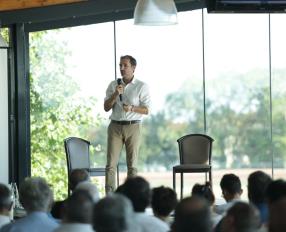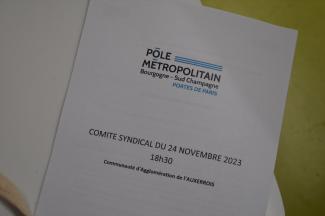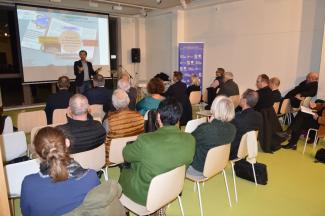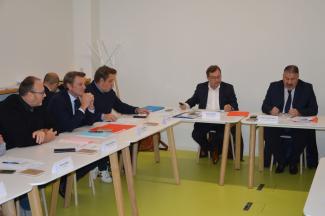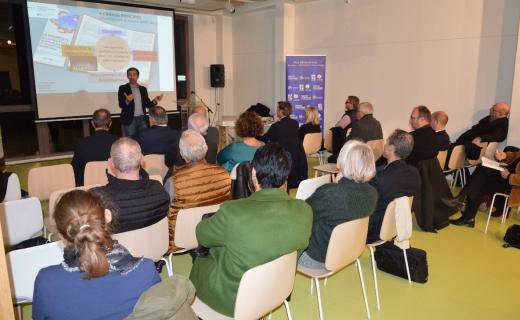
Illustration: photo taken during the Pôle Métropolitain council meeting - Guillaume Guénégou - Troyes Champagne Métropole
[Official communication from the Pôle Métropolitain].
François Baroin, President of Troyes Champagne Métropole, alongside Stéphane Martinelli, President of the Pôle Métropolitain, took part in the Pôle Métropolitain council meeting on Friday November 24.
All the cluster's local authorities were present at the meeting, which brought together elected representatives from the Communauté d'agglomération de l'Auxerrois, the Communauté d'Agglomération du Grand Sénonais and Ville de Sens, the Agglomération de Chaumont and Troyes Champagne Métropole, in the presence of Philippe Borde, President of the Communauté de Communes Région Bar sur Aube. The role of the Pôle Métropolitain is to work alongside local authorities on larger-scale projects in areas of shared interest, while giving visibility to the various metropolises that make it up.
At the end of the meeting, Christophe ALAUX, Director of the Chaire Attractivité et Nouveau Marketing Territorial (A&NMT), gave a talk on territorial marketing, with the aim of sharing best practices for enhancing the attractiveness of territories.
A few words about the Bourgogne - Sud Champagne - Portes de Paris Metropolitan Cluster
On April 7, 2017, the Agglomeration Communities of Troyes Champagne Métropole (TCM), Grand Sénonais and Chaumont, bassin Nogentais and bassin de Bologne Vignory Froncles, signed a cooperation pact at TCM headquarters, with a view to creating a Pôle Métropolitain. Called Bourgogne - Sud Champagne - Portes de Paris, this cluster is intended to carry out actions of common interest to the territories, in order to contribute to the development of these catchment areas, as a counterpoint to the emerging metropolises. The central aim of this collaboration and cooperation initiative is to join forces in order to have a greater impact on the "national territory" in fields as varied as economic development, higher education, innovation, tourism and the energy transition.
Our readers are also interested by
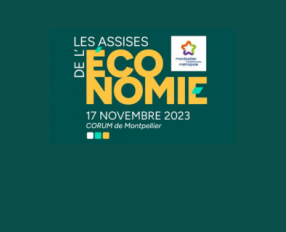
SAVE THE DATE | Retrouvez-nous aux Assises de l'économie de Montpellier, le 17 novembre 2023, au Corum.

Luberon Monts de Vaucluse Agglomération reçoit trois distinctions régionales
